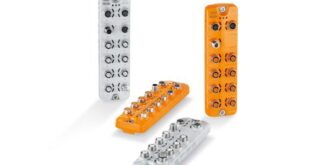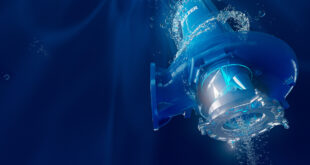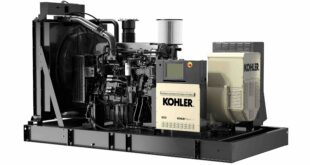In a recent experiment at the company’s dry-tech test lab in Cologne Germany, igus compared the resilience of its xiros flanged ball bearing and a conventional metallic bearing in salt water.
Results prove that the use of lubrication-free and maintenance-free tribo-plastics enables the xiros bearing to remain completely unharmed.
For the experiment, the igus engineers filled a container with saltwater from the sea and heated it to +80°C.
Then two bearings were put inside for 120 hours: a classic 2-hole flange bearing made of metal and a xiros flange bearing made of xirodur B180.
Both bearings were not completely covered in the test, but exposed to air in order to trigger the corrosion effect.
“The test result spoke clearly in the end,” says Robert Dumayne, dry-tech director at igus. “After just a few hours, the metal bearing began to corrode.” At the end of the experiment, significant traces of rust were visible on all the metal bearing components. The xiros flange ball bearing remained untouched, even after 120 hours in the heated salt water – being corrosion-free is a clear advantage for machine builders designing equipment for use in cleanrooms and food and medical technology, where rust poses a hygiene risk.
The xiros ball bearings usually consist of four components: the inner and outer rings as well as the cages made of plastic and the balls made of stainless steel or glass.
Unlike metal bearings, the wear-resistant polymer bearings enable a very smooth and hygienic dry operation without a single drop of lubricating oil and are maintenance-free. Their long service life can be easily calculated online.
In addition, the plastic bearings are electrically insulating, temperature-resistant from -40 to +80°C, non-magnetic and 60% lighter and up to 40% more cost-effective than comparable metal bearings. They are suitable for absorbing medium loads and, due to their reliability, are widely used in conveyor belts, labelling, handling and packaging machines as well as in filling machines.
 Engineer News Network The ultimate online news and information resource for today’s engineer
Engineer News Network The ultimate online news and information resource for today’s engineer





